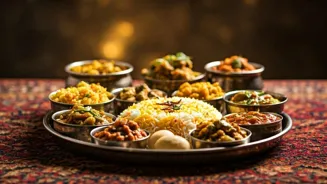Binge eating, often misunderstood, is more about what we feel inside than what we eat. This article explores the emotional roots of this behavior, offering
a compassionate perspective on understanding and healing in the Indian context.
More Than Food
The article highlights that binge eating is less about physical hunger and more about unmet emotional needs. It provides examples of this pattern, and also mentions how it can be a coping mechanism in a chaotic world, offering temporary relief. This resonated with Indian cultural experiences of stress and pressure, leading to secret rituals.
The Brain's Role
The article also points out how the brain's chemistry fuels this cycle. Comfort foods trigger dopamine release, offering immediate relief from emotional distress. This temporary escape reinforces the behavior. Early experiences of neglect or instability can disrupt emotional regulation, making food a reliable comfort source. This is especially relevant for Indian families.
Breaking Free Habits
The article suggests that recovery needs more than just willpower or diet plans. Addressing the emotional triggers through therapy and building self-compassion is key. This includes learning healthy coping mechanisms and creating supportive environments, addressing the shame often associated with binge eating. Finding ways to fill the voids is vital.
Emptiness and Ritual
The article then explains how binge eating is about an emptiness that food can't fill. The focus is on the ritualistic and temporary relief it provides. Parallels are drawn to addiction. Ultimately, it highlights how it's not just about the food, but about the chemical comfort and reward seeking in the brain.
Nurturing the Self
Finally, the article emphasizes that the journey out of binge eating focuses on self-care. Recognizing that hunger isn't always about food is a core message. This perspective encourages a shift towards self-compassion and addressing emotional needs, which is highly important in India's collective consciousness and family structures.















